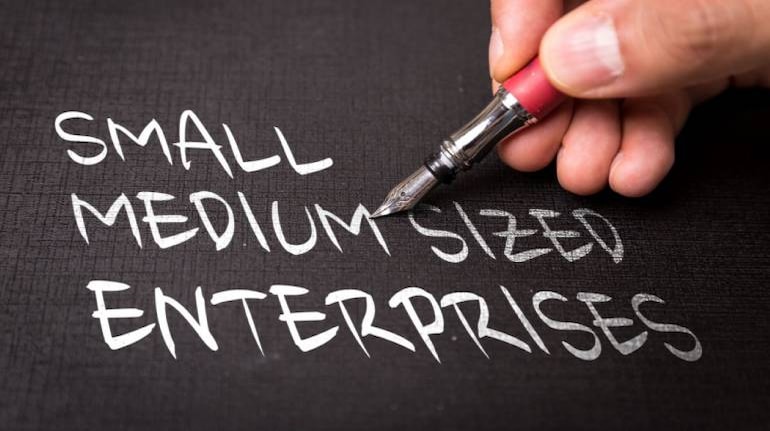



The government is understating the severity of the impact of COVID-19 on small businesses and underreporting the proportion of units that have shut down, representatives of these businesses have said.
Medium, small and micro enterprises (MSME) minister Narayan Rane recently informed the Lok Sabha that just about 9 percent of small units had closed down due to the impact of COVID-19. He was responding to a question from Congress leader Rahul Gandhi. Rane’s response was based on an online survey conducted by the National Small Industries Corporation.
The online survey conducted in August 2020 covering around 5,744 MSMEs in 32 states/U territories found that 91 percent of them were operational while 9 percent had shut due to the pandemic.
“The survey is an understatement because it captures only those MSMEs that are registered with the government, but there are so many MSMEs that are in the unorganised sector or have not registered. So we have no data about them,” said D.P. Goel, co-chairman of the MSME Committee at the PHD Chamber of Commerce.
There are an estimated 6.3 crore MSMEs that exist as per the National Sample Survey 73rd Round (2015-2016).
Sanjiv Layek, executive secretary, World Association for Small and Medium Enterprises, concurs. “Even if the government surveyed the MSMEs registered with Udyam, it is a small number. The ground reality is much more severe because there are crores of MSMEs that are not captured because they have not registered.”
Udyam is a new portal for the classification and registration of MSMEs. It started from July 1, 2020.
On June 26, 2020 the ministry of MSME issued a notification changing the definition of MSMEs and introducing a new process for MSME registration (Udyam registration). The notification stated that the existing MSME registrations (Udyog Aadhaar Number or UAN) or enterprise memorandum shall be invalid after March 31. Its validity was extended till December 31, 2021.
As on December 17, 2021, an estimated 60.96 lakh MSMEs have registered on Udyam.
Lack of credit & relief, high prices
Ramamurthy, member, All India Council of Association of MSMEs (AICA) noted that small businesses face liquidity crunch as banks are reluctant to lend to them due to uncertainty about the repayment capabilities of these units and the fear of these loans becoming non-performing assets. This problem, he said had worsened during the pandemic.
“MSMEs incurred operational expenses during the pandemic when there was complete uncertainty about reopening, lack of demand, high prices of raw materials and lack of credit, so how many could sustain their business this way,” remarked Layek.
Associations further noted that the enterprises had to shut shop because no adequate relief measures were provided to them at the time of the lockdowns.
“Most of the schemes that the government announced were limited in scope. Moreover, they had so many terms and conditions for which a majority of MSMEs did not qualify, so they did not get any relief,” said Goel.
Goel added that under the conditions for the Emergency Credit Line Guarantee Scheme (ECLGS) and Credit Guarantee Scheme for Subordinate Debt (CGSSD), only those MSMEs are eligible which have bank loans are eligible for restructuring. He argued that a majority of MSMEs do not access the formal banking system for loans, thus making them ineligible.
“When the government launches a scheme, it should ensure that it is for the masses, not for a class of people,” said Goel.
As a part of the Rs 20 lakh crore COVID-19 relief package, the government had announced the ECLGS. It aims to provide 100 percent guaranteed coverage to banks, non-banking financial institutions (NBFCs) and other lending institutions in order to enable them to extend emergency credit to business entities that have suffered due to the pandemic and are struggling to meet their working capital requirements.
Additionally, the government had also announced the CGSSD. Under it, promoters of stressed MSMEs are given personal loans, which are infused by them as equity into the business.
“Why will MSMEs take additional burden on themselves by taking loans when they were already in a big crisis?” asked Layek.
According to Layek, the government should have instead offered relief by lowering the prices of raw materials and offering schemes that catered to a majority of enterprises.
According to AICA, prices of raw materials such as middle steel plate, aluminium alloy, copper, cold-rolled close-annealed sheet, pig iron, mild steel scrap, kraft paper and engineering plastic, among others, were 37-155 percent higher in October 2021 compared to April 2020. The rates for aluminium alloy, copper and kraft paper have shot up 155 percent, 119 percent and 110 percent, respectively, during the same period.
Discover the latest Business News, Sensex, and Nifty updates. Obtain Personal Finance insights, tax queries, and expert opinions on Moneycontrol or download the Moneycontrol App to stay updated!
Find the best of Al News in one place, specially curated for you every weekend.
Stay on top of the latest tech trends and biggest startup news.